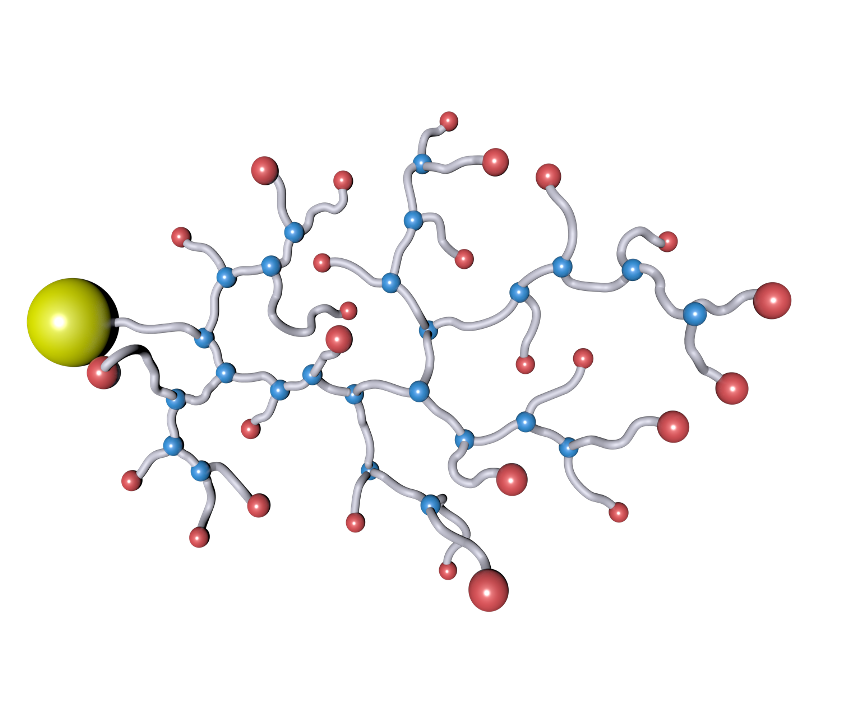Polymers in Health Care: Improving Medical Instruments and Treatments
Polymers in Health Care: Improving Medical Instruments and Treatments
Blog Article
Discovering the Varied Applications and Benefits of Polymers in Different Industries
Polymers, with their diverse range of residential or commercial properties and performances, have actually ended up being crucial in various industries, each enjoying special gain from their application. Polymers. From boosting security and efficiency in the vehicle field to transforming clinical devices in the health care sector, polymers play a pivotal duty. Their environmentally friendly nature is changing the landscape of sustainability techniques. As we delve right into the midsts of polymers in electronics, we discover innovative technologies, while their structural stability transforms the realm of building and construction and framework. The pervasive impact of polymers across markets is a testament to their versatility and flexibility, shaping the future of numerous industries.
Automotive Market Applications
Polymers play a pivotal role in improving the efficiency and durability of various elements within the automotive market. These versatile materials are extensively used in the production of different components, ranging from indoor parts to under-the-hood applications. One noticeable use polymers in the automobile market remains in the manufacturing of light-weight components. By replacing conventional steel parts with polymer-based alternatives, cars can attain improved fuel efficiency without jeopardizing on stamina or security.

Healthcare Sector Advantages
In numerous healthcare applications, the advantages of utilizing polymers are widely acknowledged for their varied array of beneficial homes. Polymers play a crucial function in the medical care industry as a result of their flexibility, biocompatibility, and cost-effectiveness. One of the main advantages of polymers in healthcare is their capability to be tailored to details needs, such as flexibility, resilience, and biodegradability, making them optimal for a vast array of medical applications.
Polymer-based products are thoroughly made use of in clinical tools, such as catheters, implants, prosthetics, and medicine shipment systems, because of their biocompatibility and capability to simulate natural cells. These products can reduce the threat of sensitive reactions or denials, boosting person security and outcomes. Furthermore, polymers are light-weight, making them appropriate for wearable medical devices and making certain client convenience.
Additionally, polymers allow the advancement of cutting-edge treatment approaches, such as hydrogels for tissue design and nanocomposites for targeted medication delivery. Their simplicity of processing and sterilization makes them important for keeping high criteria of hygiene in health care settings. Generally, the varied advantages of polymers contribute dramatically to innovations in clinical technology and client treatment.
Ecological Benefits of Polymers

Furthermore, polymers can add to energy financial savings because of their light-weight nature. In markets such as transport, light-weight polymer materials can help in reducing gas intake and greenhouse gas exhausts. In addition, polymers can enable the development of energy-efficient products such as insulation materials that improve power preservation in structures.
In addition, polymers play a vital function in lowering water air pollution. As an example, the use of polymer-based filtration systems can properly get rid of pollutants and impurities from wastewater, securing water sources and environments. In general, the ecological advantages of polymers make them beneficial properties in promoting sustainability and green practices across different sectors.
Polymers in Electronics and Modern Technology
Considering the raising need for ingenious and sustainable solutions in modern-day markets, the combination of advanced polymer technologies in the world of electronic devices and modern technology has actually emerged as a pivotal approach for driving efficiency and performance. Polymers have reinvented the electronic this post devices sector by enabling the production of lighter, more versatile, and durable digital gadgets. From smart devices to clinical gadgets, polymers play a vital role in improving product layout and functionality.
One significant benefit of polymers in electronic devices is their protecting properties, which aid secure fragile electronic components from environmental elements and electrical disturbance. In addition, polymers are important in the development of adaptable display screens, wearable innovation, and printed electronic devices, supplying countless opportunities for producing clever and interconnected devices.
Moreover, making official site use of polymers in digital packaging has actually resulted in developments in miniaturization and thermal management, improving the overall performance and integrity of electronic systems. As technology continues to advance, the convenience and adaptability of polymers will most certainly drive further advancement in the electronics market, forming the future of modern technology.
Function of Polymers in Building and Infrastructure
The combination of innovative polymer products in building and infrastructure projects has revolutionized the way frameworks are developed and constructed in modern-day times. Polymers provide countless benefits in the building and construction sector as a result of their convenience, sturdiness, and cost-effectiveness. One essential function of polymers in building and construction is their usage in coverings and sealants, giving protection against ecological variables such as wetness, UV radiation, and corrosion. Furthermore, polymers are used in the manufacturing of lightweight and high-strength composite materials, improving the architectural honesty of structures while reducing total weight.
In addition, polymers play a critical role in lasting building techniques by allowing the development Discover More of energy-efficient frameworks. Shielding materials made from polymers aid control interior temperatures, decreasing the demand for home heating and cooling down systems and inevitably lowering energy usage - Polymers.
Verdict
In verdict, polymers play an essential duty in various sectors such as auto, healthcare, ecological, electronic devices, and building and construction. From improving gas performance in lorries to improving medical devices, polymers provide numerous benefits.
Report this page